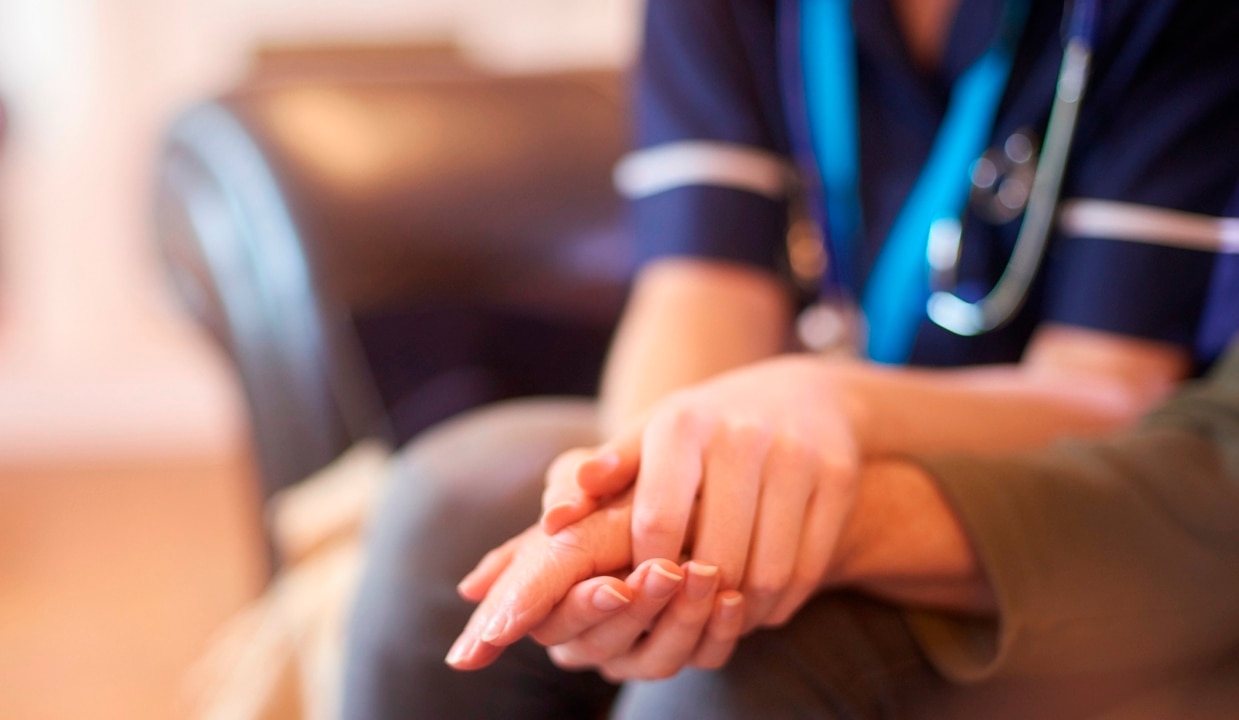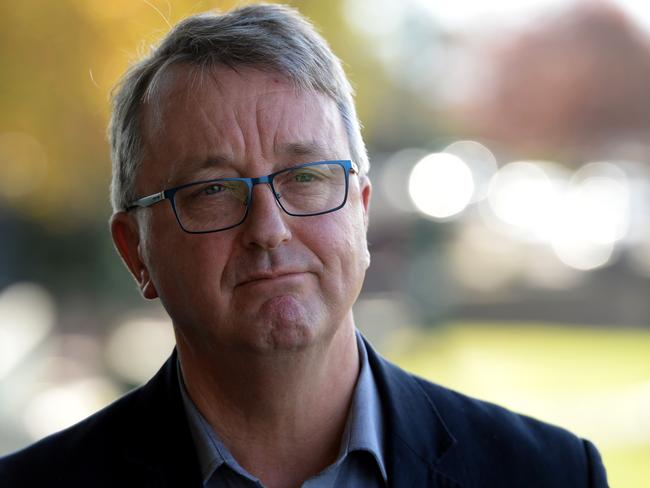Monitoring smartphone use can diagnose issues in vulnerable young people
PSYCHIATRISTS may soon be able to tap into sensors already in most smartphones to gather info about a vulnerable person — such as the tone of their voice — to determine when they are in need of psychological help. See how it works.

News
Don't miss out on the headlines from News . Followed categories will be added to My News.
THE smartphone use of vulnerable young people may be monitored and analysed to determine when they are in need of psychological help or most likely to respond to mental health interventions.
An Andrews Government-backed program is developing technology capable of analysing the data, movement and communication use of individual’s mobile phones to build up a picture of their health needs.
The University of Melbourne research is intended to be used only for those already involved with youth mental health services who want to take part in such a program.
FUNDS TO OVERHAUL VICTORIA’S MENTAL HEALTH SYSTEM
RISE IN NUMBER OF CHILDREN WITH MENTAL HEALTH PROBLEMS
FATAL FAILURE IN MENTAL HEALTH

But, if successful, the project could be rolled out more widely as an “opt-in” app
By tapping into sensors already in most smartphones psychiatrists can gather information about the tone of a person’s voice or words used in their messages, sleeping and activity cycles, movement patterns and locations, time spent online and the sites visited, or the time they spend gaming.
Melbourne University’s Assoc Prof Reeva Lederman said the mobile phone data can identify when automated interventions or support should be sent.

“We detect things about the person then we deliver something we think could be helpful to them,” she said.
“Through their actions or natural language processing we might detect that they are anxious for example, and then we might recommend to them they do one of our therapy modules.
“We might be able to say to them ‘you’re up all night on your phone playing computer games, why don’t you do this relaxation program and you might be able to go to sleep?’
“If we can see a person is playing computer games all day we could put together information about the weather, information that we know about what they are doing and their location information, and we can say ‘it’s sunny and the park is only five minutes walk from you, why don’t you go for a walk?’
“The presumption is that technology depersonalises things. We are trying to move away from that idea where we can provide a product that is tailored for your own needs.”

The Andrews Government this week provided $96,747 through its Victorian Medical Research Acceleration Fund grant to develop the first stage of the project, which will determine how phone sensors can interact with existing digital mental health services.
Minister for Mental Health Martin Foley said the artificial intelligence could be a “game changer” for regional areas, which are served by just one psychiatrist for every 100,000 people.
“Making sure young people know when to identify signs of needing support is really important to early intervention,” Mr Foley said.
Working with Dr Simon D’Alfonso and Orygen the university has already established the Moderated Online Social Therapy program, which provides online access to about 50 psycho-education modules, chat rooms and online counselling services.
Assoc Prof Lederman said the next step would involve a trial where consenting Orygen clients were encouraged to complete an online therapy session or alter their activities when data identified a need.
“Young people are used to living their lives online so they are accepting of this idea, that therapy can be delivered to you online on your phone, any time of the day or night,” she said.
“The presumption is the service would be accessible through an app that people download willingly and would be fully aware of the implications of it was and that it would collect all their data, in way that would obviously be helpful to them.”
Health Minister Jill Hennessy said the government was proud to be supporting researchers who could pave the way to better mental health treatment for young people worldwide.


